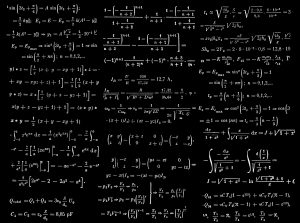Why Number Sense is Crucial for Academic Success

Introduction:
As parents, we all want our children to succeed in their academic pursuits. We often find ourselves wondering how we can support them in their educational journey. One key area that plays a significant role in shaping academic success is number sense. Number sense refers to the ability to understand, interpret, and manipulate numbers flexibly. It forms the foundation for learning advanced math concepts and is a vital skill for students of all ages. In this article, we will explore the importance of number sense in academic success and provide practical tips on how parents can help their children develop this crucial skill.
What is Number Sense?
Number sense encompasses a range of skills that allow individuals to work with numbers effectively. It involves understanding numerical relationships, recognizing patterns, estimating quantities, and making reasonable judgments about numbers. A strong number sense enables students to mentally compute numbers and perform calculations accurately and efficiently. It serves as the building block for more complex mathematical concepts like algebra, geometry, and calculus.
The Importance of Number Sense for Academic Success
Developing number sense is not just about excelling in mathematics; it has far-reaching implications across various academic disciplines. Research shows that early number sense in kindergarten is a strong predictor of later success in math as well as other subjects like reading and science. Students who struggle with number sense tend to lag behind their peers in math achievement throughout their academic journey.
Having a solid foundation in number sense enhances problem-solving skills. Students with strong number sense can approach mathematical problems flexibly, breaking them down into manageable parts and devising effective strategies to solve them. This adaptability is crucial for real-world problem-solving, where students need to apply mathematical concepts in practical scenarios.
Furthermore, number sense reduces the reliance on rote learning. Students with weak number sense often resort to memorization without understanding the underlying concepts. This hampers their ability to apply their knowledge to new situations or tackle unfamiliar problems. By developing number sense, students gain a deeper understanding of mathematical concepts, enabling them to think critically and reason logically.
Strategies to Build Number Sense
Explicit Instruction: Teachers play a crucial role in developing number sense in students. They should use clear strategies such as five frames, number lines, and concrete-to-abstract representations to help students visualize numerical relationships. By providing explicit instruction and guiding students through various activities, teachers can foster a deeper understanding of numbers.
Interactive Activities: Engaging students in interactive activities is an effective way to build number sense. Counting objects, estimating quantities, exploring patterns, and engaging in hands-on experiences with numbers help students develop a strong intuitive sense of numbers. These activities make learning enjoyable and provide practical application opportunities.
Early Intervention: Introducing number sense concepts in early childhood education sets the stage for future academic success. Early exposure to numbers and mathematical concepts helps children develop a strong mathematical foundation before entering higher grades. Parents can incorporate number-based games, puzzles, and activities into their child’s daily routine to reinforce learning.
Encouraging Flexibility with Numbers: Encourage your child to explore numbers in various contexts – visualizing them, comparing them, and using them creatively for problem-solving. By practicing mental math and engaging in activities that involve estimation and approximation, children become more comfortable with numbers and develop a flexible approach to mathematical tasks.
Benefits of Developing Number Sense
Developing number sense offers numerous benefits beyond academic success. Here are some of the key advantages:
Enhanced Critical Thinking: Number sense fosters critical thinking skills, enabling students to analyze problems, evaluate solutions, and make informed decisions. It promotes logical reasoning and analytical thinking, which are valuable in various fields of study.
Improved Decision-Making: By developing number sense, students become adept at interpreting data and making informed decisions based on numerical information. This skill is valuable in subjects like science, economics, and technology, where data analysis plays a crucial role.
Boosted Confidence: Students who possess strong number sense are confident in their mathematical abilities. They approach math problems with a positive mindset and are more willing to take on challenges. This confidence extends beyond mathematics and positively impacts overall self-esteem and personality development.
Competitive Edge: Developing number sense gives students a competitive edge over their peers. They can solve mathematical problems quickly and accurately, leading to higher scores on tests and exams. This advantage becomes particularly evident in competitive exams and future career opportunities.
The following table gives a summary on the impact of number sense to academic success:
|
Aspect |
Description |
Impact on Academic Success |
|---|---|---|
|
Foundation for Advanced Math |
Forms the basis for algebra, geometry, and calculus |
Enables progression to higher-level mathematics |
|
Predicts Future Performance |
Early number sense correlates with success in math and other subjects |
Helps identify students needing intervention early |
|
Enhances Problem-Solving |
Promotes flexible thinking and strategic approaches |
Improves ability to tackle complex tasks |
|
Reduces Reliance on Rote Learning |
Encourages conceptual understanding over memorization |
Builds deeper comprehension of mathematical principles |
|
Supports Cross-Disciplinary Learning |
Boosts logical reasoning applicable in science and technology |
Prepares students for STEM-related fields |
Summing Up:
Number sense is a fundamental skill that significantly impacts academic success across all levels of education. It forms the foundation for advanced mathematical concepts and enhances problem-solving abilities. By developing number sense, students reduce their reliance on rote learning and gain a deeper understanding of mathematical concepts.
To support your child’s development of number sense, consider enrolling them in an abacus learning program like SIP Abacus India. SIP Abacus uses the abacus tool and visualization techniques to teach children mental math skills from ages 6-12. Their world-class skill development programs focus on developing strong mental math abilities, improving concentration, enhancing overall intelligence, boosting confidence, and providing a competitive edge over peers in exams.
By nurturing your child’s number sense from an early age, you are setting them up for academic success and empowering them with essential skills that extend beyond mathematics. Embrace the power of number sense and watch your child thrive in their educational journey.



